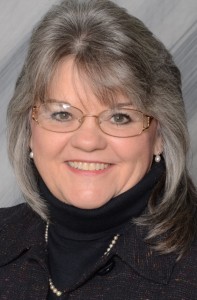
The writer is Jeanne Fagan, Professor of Business Administration at Finger Lakes Community College.
Fanny packs. Loud clothes. Goofy behavior. Somehow our notion of a tourist went sour.
Blame it on Chevy Chase? It hardly matters. I say we junk the term and use only the word “visitor.”
Think about it. When you have a visitor, you clean the house, you buy flowers, you buy the gourmet coffee.
The image of the tacky tourist has unfortunately tainted tourism in general. As coordinator of two community college tourism degree programs, I get a little miffed by the misunderstanding or lack of respect for the industry.
Here is a sector of the economy that generated $1.8 trillion in 2010 and supported 14 million jobs, 7.4 million directly in the travel industry and 6.7 million in other industries. And you can’t outsource tourism. The Grand Canyon isn’t going anywhere.
People and high places are starting to “get” tourism’s potential for job creation. In January, President Barack Obama signed an executive order to address the issue of easing visa requirements to make it easier for international visitors to access the United States as a destination.
Read more about it here.
It’s about time. We’ve been losing ground in the international tourism market for years. In 2000, the U.S. enjoyed 17 percent of the global long-haul travel market. By 2010, that number had dropped to 12.4 percent.
To truly take advantage of the opportunities this executive order brings, we need an educated workforce, and we need to broaden our idea of what a tourism job is. Sure there are seasonal ticket booth workers, waitresses and parking attendants. But every attraction – from a winery to a ski resort – has a core of full-time year-round workers. Hotels, chambers of commerce and marketing agencies are well-served by employees with a tourism background. We need museum directors, event coordinators, concierges and others who understand the need to welcome foreign visitors and help them interpret American culture – in other words, treat them like the much-anticipated visitors that they are.
Finger Lakes Community College’s tourism programs are perfectly positioned to take advantage of this new focus and developing respect for the tourism industry. FLCC is also one a few destination-based tourism programs, which means we focus on how teaching students how to develop and market a destination. For many our students, that destination is the Finger Lakes region itself, which is increasingly a favored by international tourists.
Tourism doesn’t just benefit those employed in the industry. Very often, a nice place to visit is a nice place to live. A community that values tourism will value itself, paying attention to its environment and quality of life. Just one more reason to welcome those visitors.


This is the kind of piece I will definitely be sharing my friends today:-)
I enjoyed your article. In areas of tourism there is also a high demand for professional locksmith services. Hosting facilities door locks, roadside assistance, lost keys, lockouts, security cameras and more are often serviced in what USA News reported as one of the top ten career choices. Newer automobiles utilize transponder chip technology and hotel security cameras and access control systems are everywhere and require newer, more educated service providers. Tourism is a good thing!
Very good information on International Travel and Tourism.